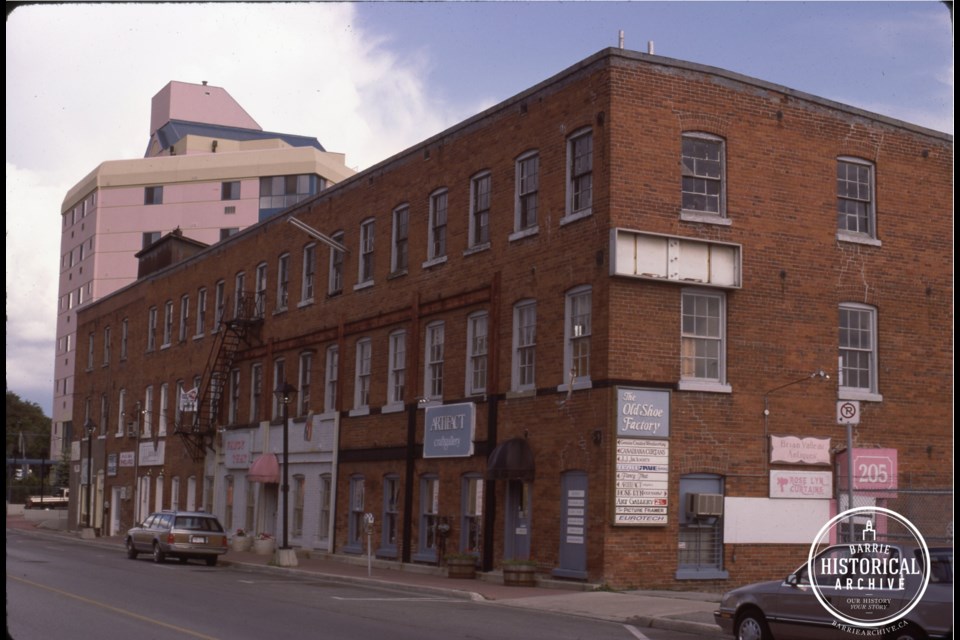This ongoing series from Barrie Historical Archive curator Deb Exel shows old photos from the collection and one from the present day, as well as the story behind them.
Spencer Industrials and the Underhill Shoe Company
In 1905, Spencer Industrials applied to the Town of Barrie for a $5,000 loan.
Along with a mortgage on the land, the town would provide electricity from 6 a.m. until 7 p.m., but no free water, tax exemption or fixed assessment. As part of the agreement, Spencer Industrials was to build its factory, at a cost of $6,000, and employ at least 20 workers. The town loan would help the company to build the facility, acquire machinery and equipment, and establish the business. Council and the community were encouraged to support the bylaw to provide the loan — bringing jobs and new industry to Barrie was a good thing.
By the end of that year, Spencer Industrials had officially changed its head office from Toronto to Barrie. Work was underway to build the new factory on the site of the old Barrie Tanning Company ruins on Dunlop Street East. The tannery had burned about 1900, before its new tannery was constructed on Bradford Street.
Spencer Industrials’ new factory was expected to have a bigger footprint than the old tannery — an impressive 105 by 42 feet, a larger facility than originally proposed, and would open the following January. The new company would manufacture some name-brand and patented items such as Echo Baking Powder and a bluing paddle, as well as tack boxes, match safes, gum, cases for holding toilet articles, small boxes used by merchants, along with pin and button holders, with plans to make other products like brushes, baskets and whisks in the future.
Just six months into production, a young Englishman, Charles Delves, new to Canada and only three days with the company, was nearly killed when the emery wheel he was operating burst, striking him in the forehead. The wheel, which was about eight inches in diameter and one inch thick, fractured the man’s skull. Fortunately, after having part of his skull removed, Delves was reported to be recovering well from this industrial accident.
But was this horrifying mishap a harbinger of bad things to come?
By 1908, Spencer Industrials was in arrears on its commitment to the town, and W.A. Boys was engaged to collect the debt. The following spring, the company was considered defunct. The town held the first mortgage, and Mayor James Vair stated if the town wished to sell, he had a purchaser for the property. Vair hinted the buyer had the money to start up an industry.
The buyer was the Underhill Shoe Company. The shoe manufacturer relocated business from Aurora to Barrie and, in the fall of 1912, work was underway to convert the Spencer Industrials building to a new shoe factory. Underhill purchased the property for $1,500 — $150 per year, interest free, for 10 years. Like the previous owner, there was an arrangement: The shoe factory was expected to be up and running by January 1914, employ at least 75 people and remain in business until 1921. Underhill closed its remaining business in Aurora in 1917, to the great benefit of the Barrie plant.



